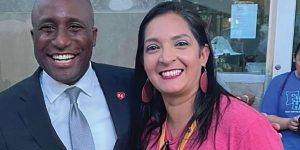
Muy pronto se les pedirá a los colombianos que voten sobre el acuerdo de paz alcanzado por el gobierno de Colombia y las Fuerzas Armadas Revolucionarias de Colombia para poner fin a la larga guerra en el país sudamericano.
El gobierno de Colombia y el grupo rebelde concluyeron oficialmente las negociaciones el 24 de agosto; casi cuatro años de conversaciones de paz en La Habana, Cuba, que dieron como resultado un documento de 297 páginas que contiene los acuerdos finales entre el grupo guerrillero y el gobierno sobre cuestiones tales como la participación política y los cultivos ilícitos.
Se espera que Colombia tenga una votación nacional el 2 de octubre para aprobar el acuerdo; la decisión del país es para poner fin a un conflicto que se prolongó durante más de medio siglo y llevó más de 220.000 vidas. Esta decisión va a depender de si los colombianos votan sí o nó apoyando el acuerdo final hasta el final de la guerra y construir un estado de paz duradera.
De acuerdo con la colombiana Jennifer Quintero, el país está dividido desde que el gobierno y las FARC llegaron al acuerdo.
“El país está dividido entre el si y el no,” dijo Quintero. “Yo en verdad no estoy de acuerdo con muchos de los acuerdos – como el hecho que la guerrilla no vaya a la carcel o hagan parte del gobierno. Pero al mismo tiempo no podemos seguir matándonos.”
Quintero dijo que no sabe cuál será su posición el 2 de octubre, sin embargo dijo que el voto ha generado conflicto en vez de paz.
De acuerdo con el presidente de Colombia, Juan Manuel Santos, Colombia está cerca de lograr la paz. Sin embargo, muchos analistas políticos creen que, a medida que los rebeldes integrarse en la sociedad, se convertirán en bandas de delincuentes organizados y continúan los combates, así como los cultivos ilicitos.
Colombians face decision over peace agreement
By Paula Alzate
Colombians will soon be asked to vote on the peace agreement reached by the Colombian government and the Revolutionary Armed Forces of Colombia to end the South American country’s long war.
The Colombian government and the rebel group officially concluded their negotiations on Aug. 24. Almost four years of peace talks in Havana, Cuba, resulted in a 297-page document that contains the final agreements between the guerilla group and the government on such issues as political involvement and illicit crops.
Colombia is expected to take a national vote on Oct. 2 to approve the agreement. The country’s decision to end a conflict that lasted for more than a half-century and took more than 220,000 lives will hinge on whether Colombians vote yes or no on supporting the final agreement to the end the conflict and build a lasting state of peace.
According to Colombian citizen Jennifer Quintero, the country is divided since the government and the FARC reached the agreement.
“The country is divided between the yes and the no,” said Quintero. “I really don’t agree with a lot of things – like the fact that the guerrilla is not going to go to jail or that they will be part of the government. But at the same time we can’t continue to kill each other.”
Quintero said she does not know what her position will be on Oct. 2 but she said the vote has generated “conflict instead of peace.”
According to Colombian President Juan Manuel Santos, Colombia is close to achieving lasting peace. However, many political analysts believe that, as the rebels integrate into society, they’ll become organized criminal gangs and continue fighting, as well as trade cocaine.









